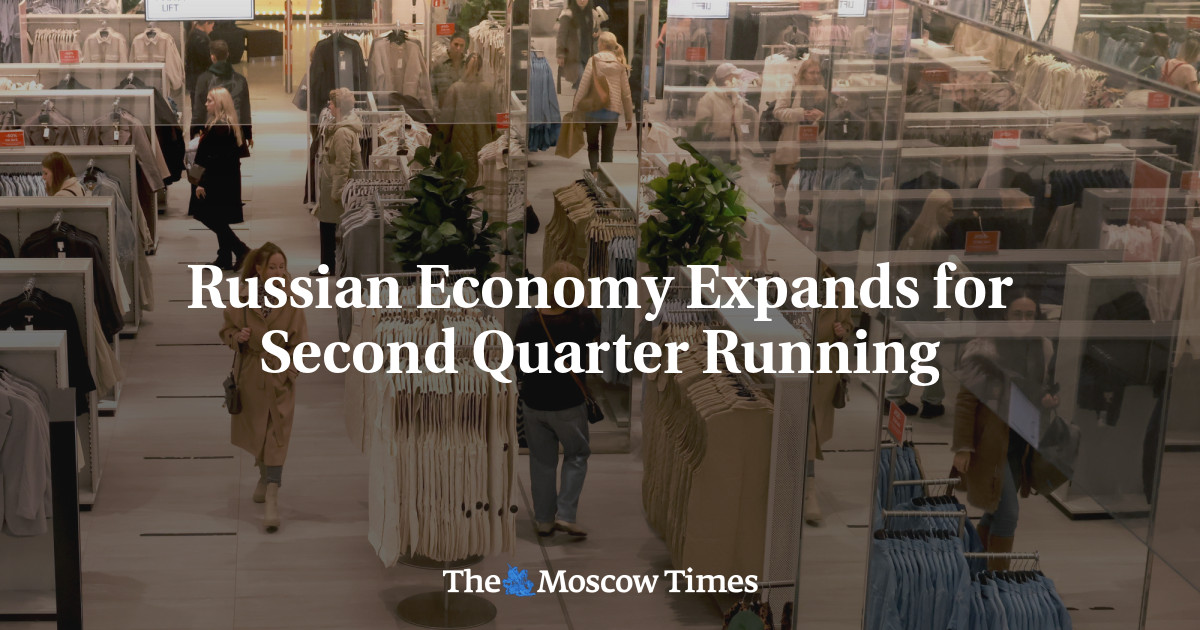
Russia’s economy grew for a second consecutive quarter despite high inflation and Western sanctions that have weakened the ruble, official data showed Wednesday.
The economy expanded by 5.5% year-on-year in the third quarter after contracting in the same period last year, according to the federal statistics agency.
The Russian economy shrank in 2022 but it started to grow again in the second quarter of this year on an annual basis, ending a streak of four straight quarters of contraction.
Officials have forecast the economy to rebound in 2023, with the Central Bank expecting growth of between 2.2% and 2.7% for the full year.
Economy Minister Maxim Reshetnikov said last week annual growth should come in at 3%.
Russia was hit by unprecedented Western sanctions in the wake of its military campaign in Ukraine.
Moscow has since redirected much of its vital oil and gas exports to China and India and imposed currency controls to prop up the ruble, which remains volatile, trading at around 90 rubles per dollar.
President Vladimir Putin has hailed Russia’s economic performance in the face of Western sanctions.
But independent analysts say a huge increase in military spending, while supporting the economy, is leading to other problems.
Inflation has surged and unemployment is at record lows, leading to labor shortages and consistent upward pressure on prices.
The central bank has raised interest rates to 15% in a bid to tame inflation.
Price rises are a particularly sensitive topic for Russian society, which has seen successive periods of high inflation in the three decades since the collapse of the Soviet Union.
The Kremlin is keen to portray the economy as an area of strength ahead of presidential elections in March 2024.